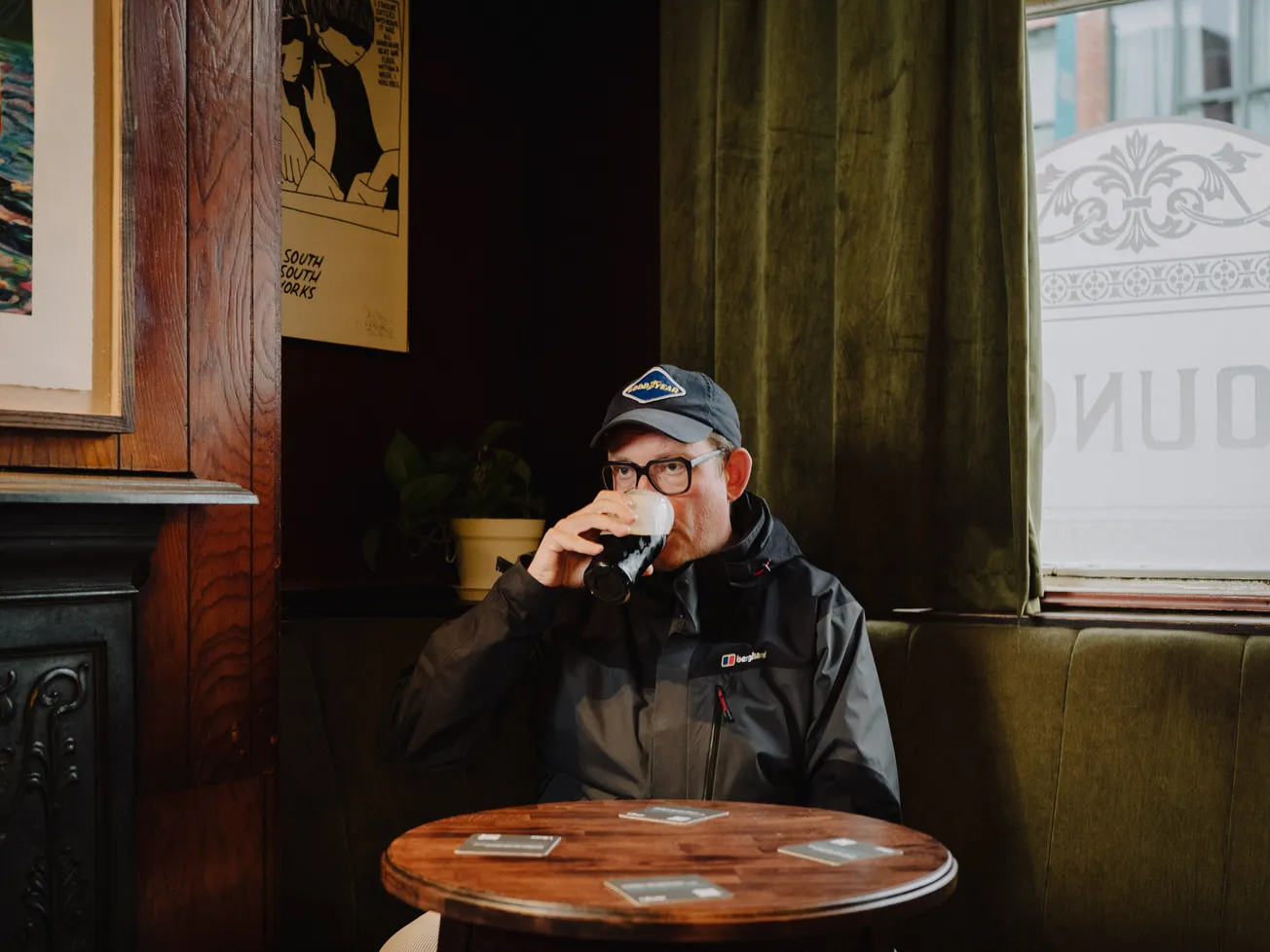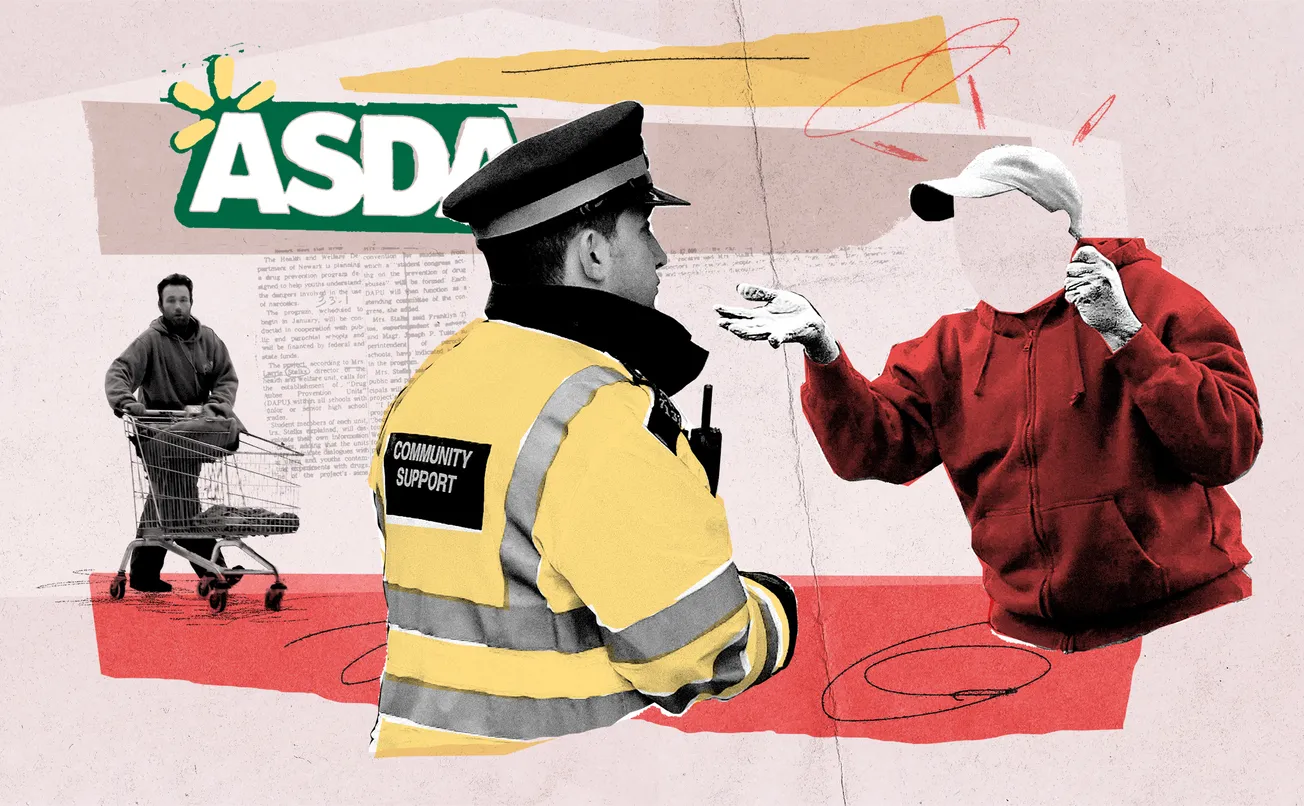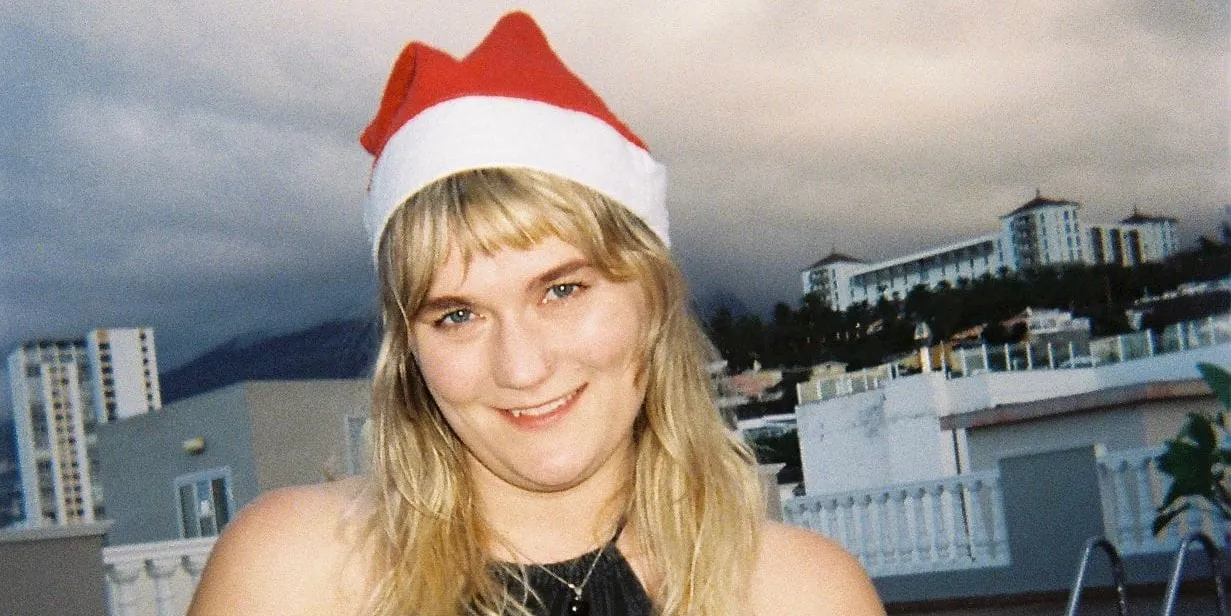“Daniel’s going to write a puff piece about me,” James O’Hara tells his friend. “Or… what’s the opposite?”
“A hatchet job,” I confirm.
“Yeah, that.” He nods.
I haven’t set out to do either. But this much, I think, is indisputable: Sheffield is quite a different place to what it would be if it wasn’t for James O’Hara. Hospitality, events, culture, regeneration — in recent years, all of these things have O’Hara’s stamp on them.
I interview him three times, always in pub gardens, always with beer, always him smoking. (“No, please don’t put that. You’ll get me in trouble”. “She must know, James.”) His thick glasses and occasional trench coat lend him the slight air of George Smiley, albeit with a thick Sheffield accent that he has resisted any pressure to tone down. “It ends up becoming a super power. There’s people in Barnsley I can't understand. That’s magic.”
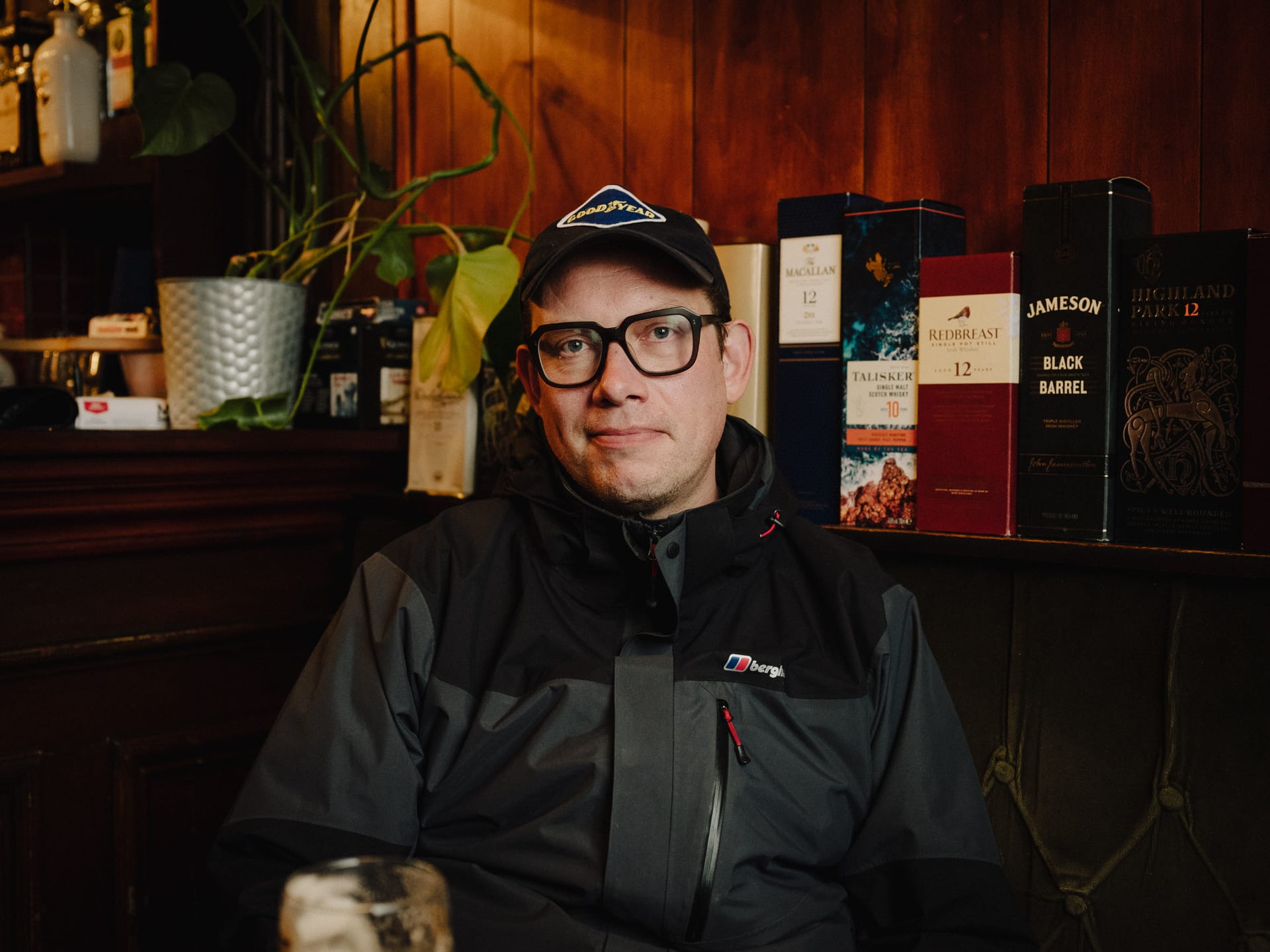
It’s hard to keep tabs on just how many pies O’Hara has fingers in. Famously, there’s Tramlines, the music festival he and friends started before selling up in 2019. It’s now comfortably the city’s biggest get together. Then there’s the much newer festival for podcasts, Crossed Wires. He either owns, runs, or has a stake in a host of hospitality venues — Public, The Foresters (Gatsby, as was), Picture House Social (O’Hara is still involved in its replacement, Abbeydale Ballroom), plus the businesses he’s stepped in to save, like Kelham Island Brewery and Fagan’s pub. There’s Leah’s Yard, the anchor heritage regeneration scheme in the city centre (which, in the interests of full disclosure, The Tribune’s office is based in). Ambulo Cafe. S1 Artspace. The list goes on.
Sorry to interrupt! The Tribune covers everything in Sheffield, unearthing the surprising and stories of this city. Sign up for free and you'll never miss an e-mail. No card details required.
It should be noted — and it’s a point O’Hara regularly makes — that in all of these he’s collaborated with others. In fact, O’Hara’s unique talent perhaps lies in corralling people into taking things on with him. As a young promoter hustling to get Tramlines going, O’Hara’s contact book, and especially his connection to Arctic Monkeys drummer Matt Helders, proved invaluable — first in getting the council on side and then getting punters in. (He got Helders back as one of those behind the reopening of Fagan’s.)
“The best things I’ve done [are] where I’ve gone: ‘I really wish we had that’”, he says. “And then I’ve pulled a group of people together, and then we’ve done it. And if that’s improved the city, then that’s brilliant.” He adds that in a city of Sheffield’s size, it’s possible to “do a lot of good.”
Does he see himself as Sheffield’s Citizen Kane then, or a modern day Victorian philanthropist? He guffaws. “I don’t think I’m successful enough.”
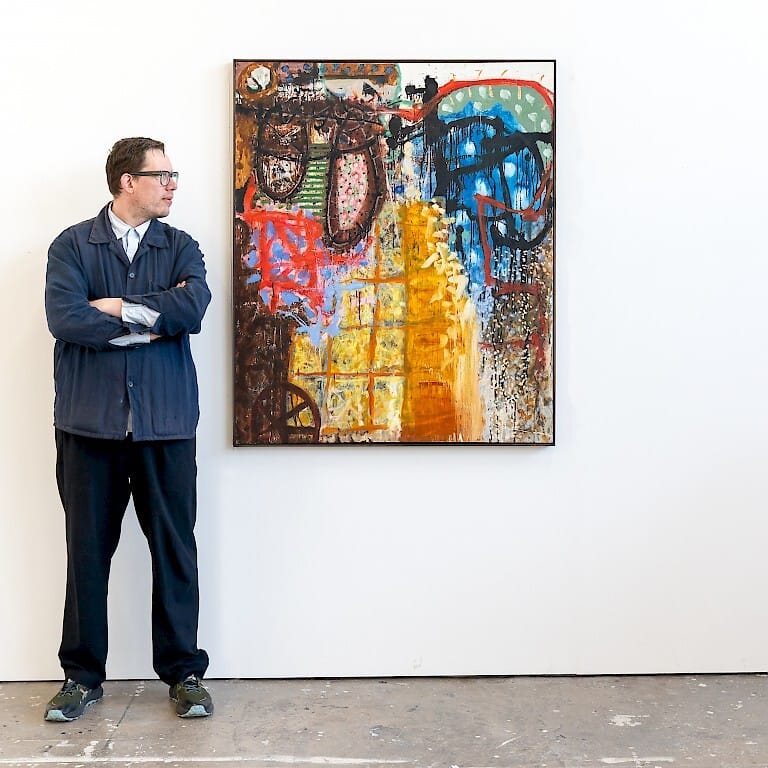
So just how successful is O’Hara? It depends how you measure it. In our first interview he tells me: “I own a house and I don't have a real job. I've kind of won.” But when I remind him of this remark later, he backtracks a bit. “I own a three-bed semi in Norfolk Park. I don’t drive a fucking Rolls Royce, you know what I mean?”, he asks. “Well, I can’t drive. I failed my test five times.”
But in the challenging world of hospitality, the bar for success is pretty low. “You’ve clearly succeeded where others have failed,” I say.
“Well…”
“Well, you broadly have.”
“Yeah, broadly. But there’s failures,” he pushes back. “Because I've done a variety of different things, there's a perception of success that's not really true.”
It’s a perception that might not endear him to everyone. “I’m aware that there’s probably a bit of a sigh every time I announce another thing, like, ‘oh for fuck’s sake, this guy again?’ I’m not stupid.”
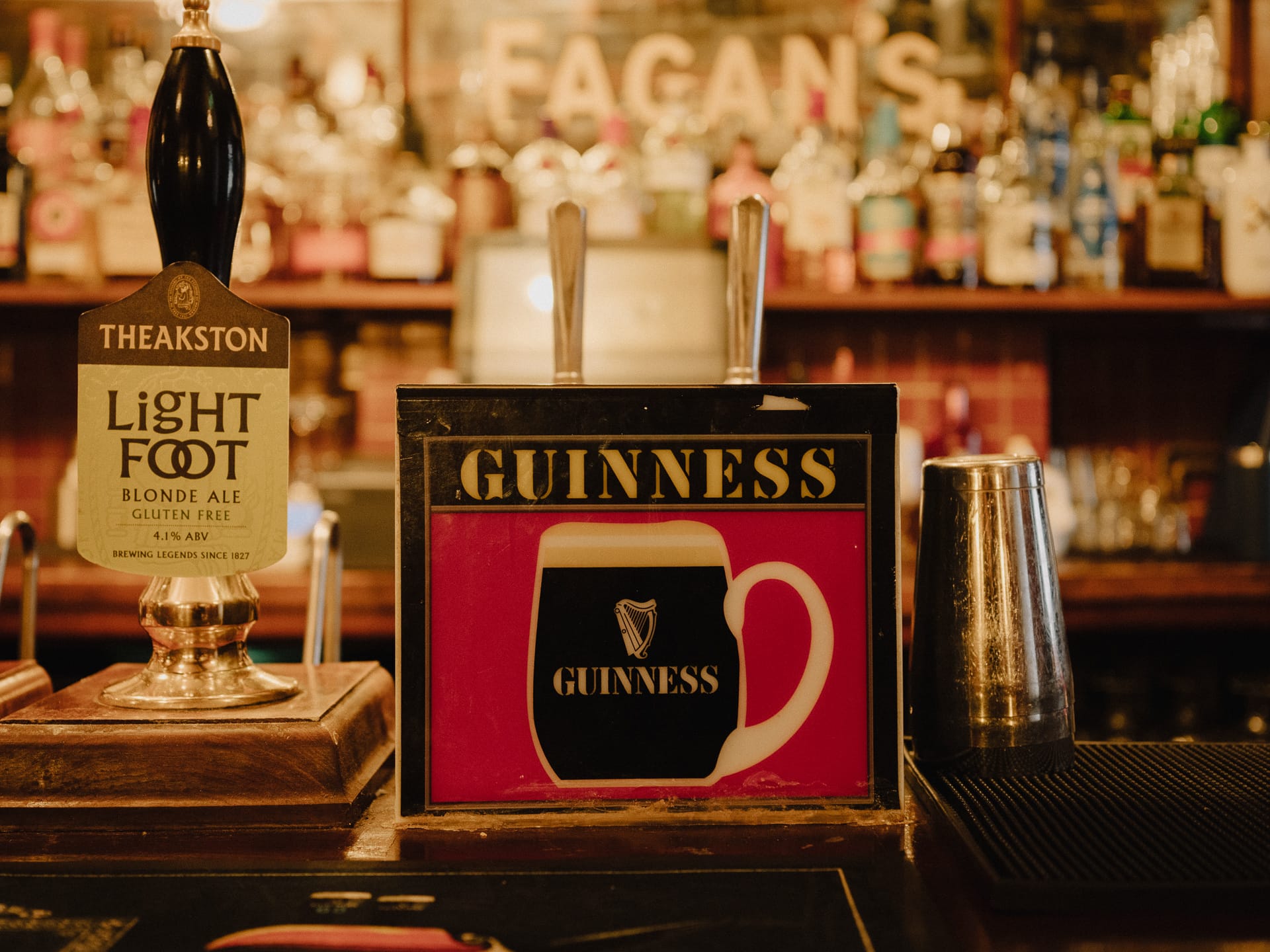
When I suggest that it might be a problem that one person is involved in so many things, he nods. “Maybe. All the things that come across my radar and that I get involved in, someone else could do them. They just…” he leaves the sentence hanging.
“Don’t”, I suggest.
“They often don’t,” he nods. “And that’s not for me to judge why that doesn’t happen.”
O’Hara’s biggest financial success — Tramlines — is one he also insists came close to going bust several times before they sold it. I ask him about the festival now, which was bought by UK festival giant Superstruct, who were then themselves bought by KKR, a huge US-based private equity firm. Does he think that’s a problem for Sheffield?
“Not really… big business isn't necessarily bad business, and I do think that the new owners of Tramlines, whether that's Superstruct or now KKR, have largely kept the DNA of the event.”
Of course, in many cultures it would seem bizarre in the extreme that I’m here questioning a businessman over what has been a mostly successful career. But perhaps the issue is less O’Hara’s personal success, and more the sense for some that things in Sheffield are a bit too cosy. O’Hara has praised council leader and chief executive Tom Hunt and Kate Josephs to me more than once, as well as Mayor Oliver Coppard. At the same time, he’s been trusted with Leah’s Yard, while Crossed Wires got a significant chunk of mayoral funding and permission to take over the city centre.
Never heard of James O'Hara? That's what The Tribune exists to do - shine a light on those who have a big impact on the city and explain what's really going on. If you want more of that, just hit that button below and sign up for free.
“If you do a good job, you get the opportunity to do another good job,” he says, arguing that Tramlines proved he could make things work. Nonetheless, they’re clearly all on pretty friendly terms. During one conversation, Sean McClean, the council’s Director of Regeneration and Development, walks past and affectionately chides him for not having taken his Crossed Wires flyposters down. ("That's a good bit of colour for your piece," O’Hara notes, correctly.)
Strangely, for someone who has been involved in so many ventures, O’Hara insists his natural tendency is to be a slob, whose descent into idleness is only held back because “I keep putting problems in front of myself”. But his advantage — and perhaps the reason it’s him and not someone else — is his “almost psychotic attitude to risk”. You probably do need that to keep on taking on struggling businesses or launching enterprises hitherto unproven in a city.
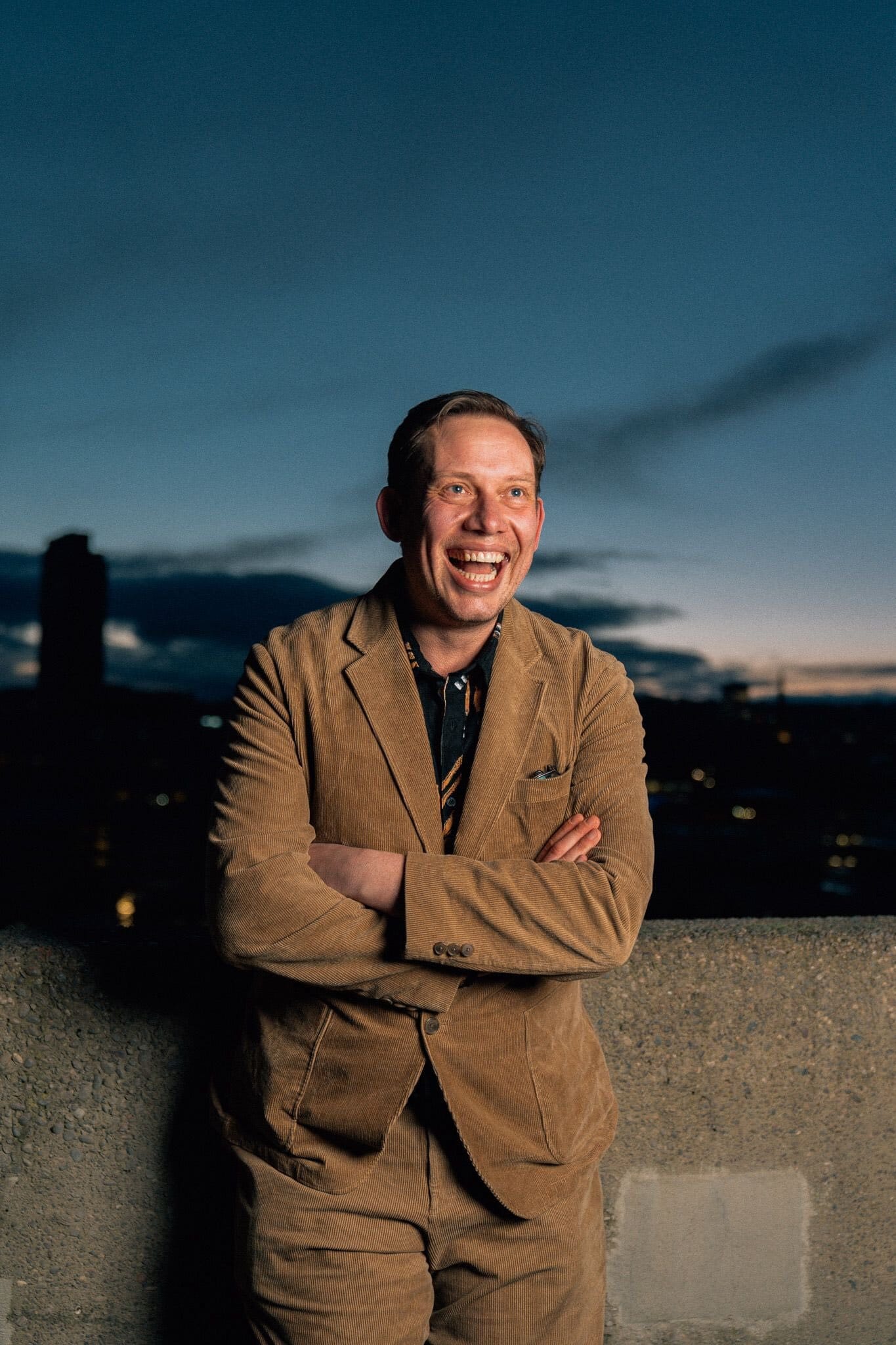
O’Hara’s relationship with Sheffield is a warm but complex one. Early on, he experienced the disparities within the city. Born to a working class family in Shiregreen (his dad was a steel worker and his mum worked in the John Lewis cafe), his most formative experience, by his own telling, was going to secondary school at Notre Dame. “I remember the first day, getting to Fulwood, and being like, ‘Fucking hell, this is a different world.’”
His time there was “pivotal to everything I've done”, particularly the friendships he forged (including, among others, Jon McClure of Reverend and the Makers). “Our friendship group is amazing, constantly inspiring… we all look after each other,” he says. “[They] know that beyond the business side and the serious side is a bit of a silly, fun-loving idiot.”
O’Hara has ridden the wave of Sheffield’s regeneration, and wants more big players to get involved. But he doesn’t seem comfortable with admitting to being a big player himself. Even as he’s saying we should celebrate our successes more, he’s downplaying his own. (Not that he’s always self-effacing. At one point, I read out the full list of things he’s done. Surely he feels some pride? “False modesty is fucking crap. Am I proud? Yeah.”)
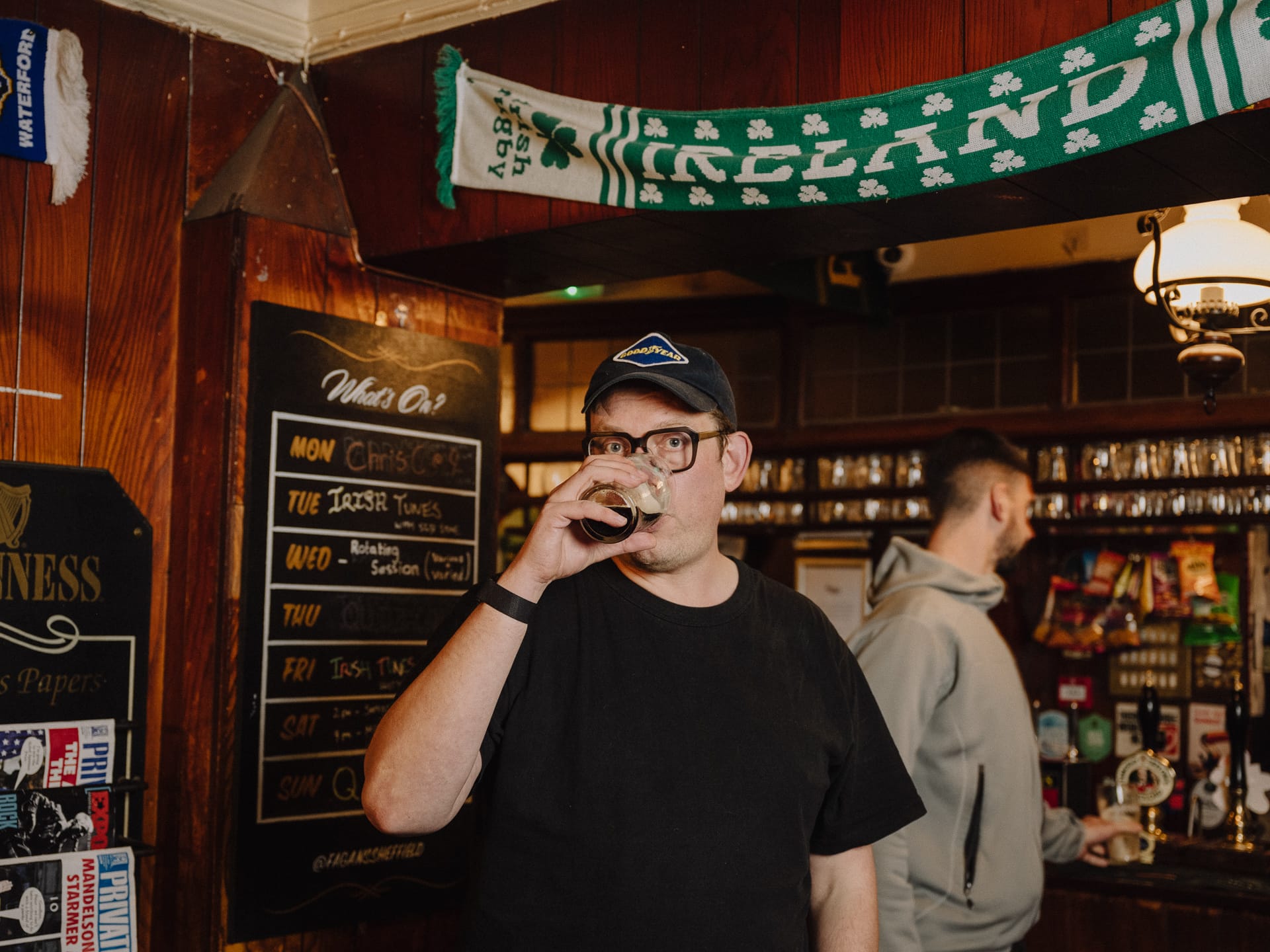
Has he ever thought about getting into politics, I ask, but I think I know the answer already. A long pause. “It is something I’ve thought about, if I’m being totally honest. And I would never say never.”
If O’Hara had a manifesto, its main commitment would probably be: more pubs. Here he definitely diverges from the Victorian philanthropists; for him the alehouse is not a source of societal ills, but the answer to them. “The internet can make you feel like your next door neighbour's your enemy. It's just a load of bollocks, that… meeting different people in a public space and having a drink and talking to the person who's on the table next to you — I think it's extremely powerful, that stuff.”
Or, he says, if someone walks into a pub with a stupid opinion they’ll be told so, rather than online where they’ll be validated. He doesn’t need to be a politician to achieve that. “A lot of what I do is bringing people together, right?”
There’s another tension for O’Hara as well, I think — between whether things are actually getting better or worse here. On the one hand, he frequently references Sheffield’s current cultural successes with a kind of awe. “We’ve just had Warp Films win eight bloody Emmys [for Adolescence]. I mean, their office is in Park Hill. Like that’s mental. It’s just bizarre.” He reels off some more local big names: Self Esteem, Bring Me The Horizon.
But would a boy from Shiregreen today have the same opportunities he had? “Nope. No I don’t think they have,” he says. “The arts have become homogenised by people from a certain social strata.”
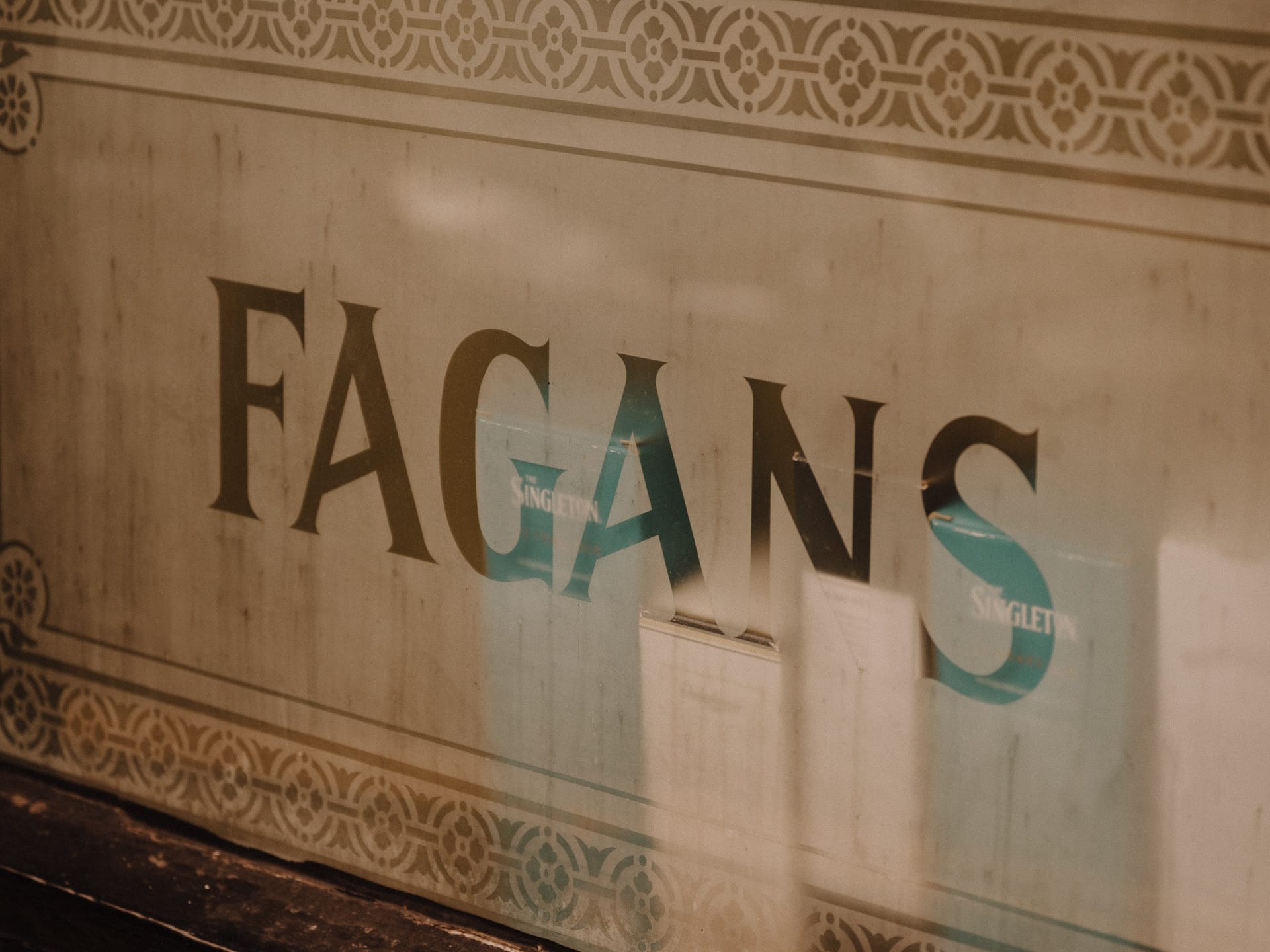
In truth, there’s little chance of producing the hit piece O’Hara jokes about. “I have only positive things to say,” says one fellow member of the city’s events elite; others give feedback on a scale of neutral to positive, even when offered the chance to speak off record. I’m forced to ask the man himself if he has any enemies. “I don't consider anyone my enemy. And I also think: that's bad business. I always want to remain on good terms with people.”
But how can you be so prolific without any skeletons? I remember when I first met O’Hara, shortly before we moved into Leah’s Yard. He told my colleague Victoria that reading her exposé on Kommune “scared the shit out of” him. Yet if O’Hara has made his way by dubious means the evidence is well hidden. “Others have been more on the gangster-ish side,” one senior figure in the events sector tells me. “He's a good businessman.”
The thing there is evidence for is several of O’Hara’s businesses closing while owing HMRC a lot of unpaid tax. (It’s an awkward subject to bring up with anyone, especially when you’re sat in their pub.) Back in 2023, Bar Public Limited (which ran Gatsby and Picturehouse Social) was liquidated, owing over £450,000 to HMRC. But that company was already a replacement for two other O’Hara companies that liquidated in 2020 with over £200,000 of unpaid tax owed.
It’s not the fact that the businesses closed — par for the course in hospitality, especially over the pandemic period. It’s the fact that every time new businesses, also run by O’Hara, immediately opened in their place, in exactly the same venues. While the taxpayer was left short, the punter wouldn’t have known the difference.
“I think if you look at big operators, it's not unusual,” he protests when I put it to him that this basically looks like a dodge (to be clear, there is no suggestion of illegality). “Ultimately, it becomes about survival. I have never tried to pretend that it's all been successful.”
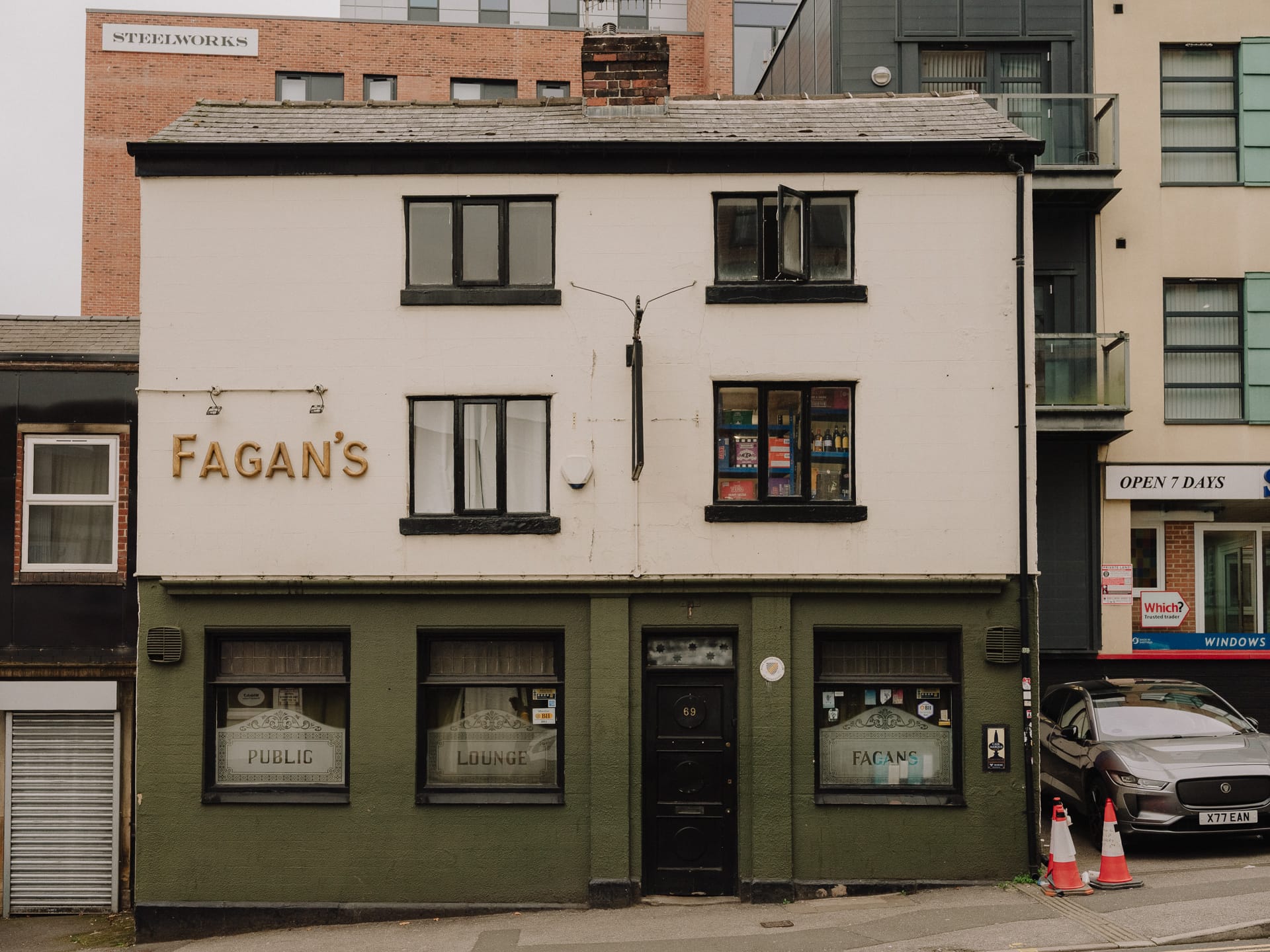
After we finish our pints, I assume we’re done. But the next week, O’Hara calls me back for another rendez-vous at Fagan’s. He’s got something he wants to discuss. “I won’t spoil the surprise,” he says, as we stand at the bar while two more pints of Guinness are carefully poured out (second best Guinness in Sheffield, O’Hara claims, after The Grapes).
It transpires that we’re here again because of a comment I’d made in our previous interview. Don’t the galleries, podcast festivals and cocktail bars he’s involved in have something in common — a broadly middle class audience? It was a deliberately provocative question — he bristled at the time — and he’s been mulling over it all weekend.
‘It was total chaos’: Inside the launch of Sheffield Teaching Hospitals’ new IT system
“What I wouldn’t want to be tarred with is, for want of a better word, [being] a gentrifier”, he says. “Because of where I’m from that makes me think, ‘Ah, am I?’ But I’m not sure I am”. Public, he points out, was a derelict toilet (“I would get the criticism if it was an existing public toilet.”) And he thinks in Sheffield there’s still an awful lot of unused industrial buildings that can be converted without having to turf out existing culture.
But isn’t the point more what the buildings signify? Doesn’t it communicate something to the 30-something up from London, wondering where to buy a house, that Sheffield has high-end cocktail bars?
“How many is there?” he retorts. “We’re a big city and Public’s the only… is it the only? No, actually, there’s The Pearl… which, for fuck’s sake, I have a part in, kind of disproving my point,” he sighs. Recovering, he argues that no-one’s really moving here for the cocktails and small plates. It’s the schools, the safety, the green spaces.
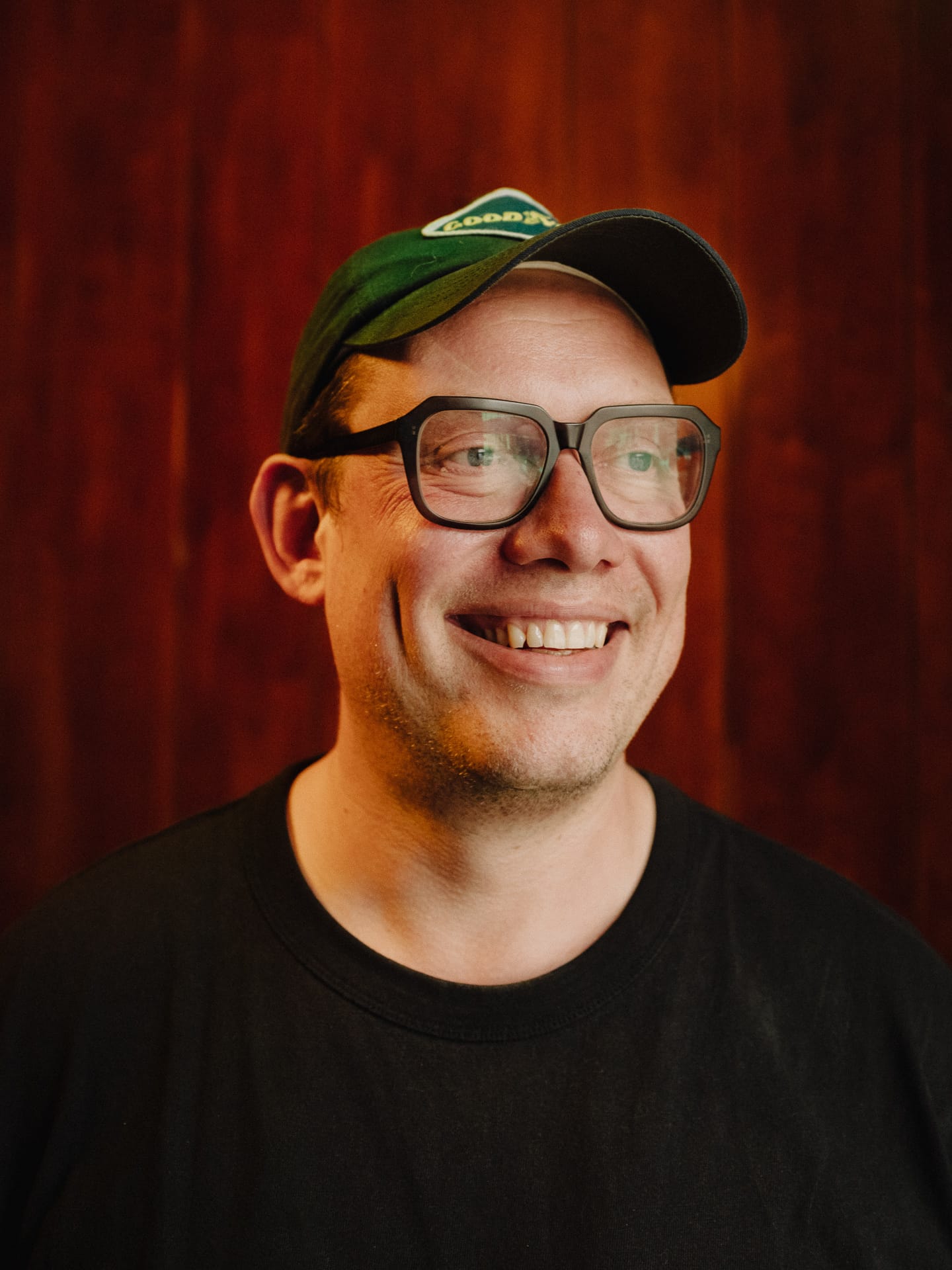
But the bigger issue for him is the suggestion that these services are only aimed at a certain type of punter. “We're at risk of saying, ‘right, you're from that background’”, he indicates a hypothetical bucket of people. “You've got Wetherspoons, working men's clubs, pork pies, right? You're from that background” — another bucket — “you've got sourdough, cultured butter, cocktail bars and small plate restaurants, right?” And a third. “You're from that background, you've got an ostentatious Range Rover, and you live in Dore. We stratify people too much.” While the better off might be able to go to Public for a drink more often, anyone could go there for a treat. “It's [people like] my mate, who lives in Hillsborough, who's taking his missus out because it's their anniversary, and he wants to spend 50 quid on some nice drinks, and he should be allowed to do that.”
Almost too conveniently, at this point a man who knows O’Hara steps into the beer garden. It later turns out that it’s secretive artist Melville the Third, whose work focuses on working class culture, and is only normally seen wearing a balaclava. He says that he wouldn’t get two or three rounds in at Public, but he’d go for one. O’Hara smiles — point proven.
We move into the snug; he’s got a call with the organisers of Day Fever, the daytime clubbing event he’s been putting on around the country. They discuss everything from ticket prices to the decision to get Anton Du Beke involved.
It’s time to leave; I’m a lightweight and just don’t have the stamina for more Guinness. I bid O’Hara goodbye as I walk out of Fagan’s. “Thanks for letting me clear up my neuroses,” he calls after me.
If someone forwarded you this newsletter, click here to sign up to get quality local journalism in your inbox.
If you’d like to sponsor editions of The Tribune and reach over 30,000 readers, you can get in touch or visit our advertising page below for more information
Comments
How to comment:
If you are already a member,
click here to sign in
and leave a comment.
If you aren't a member,
sign up here
to be able to leave a comment.
To add your photo, click here to create a profile on Gravatar.


